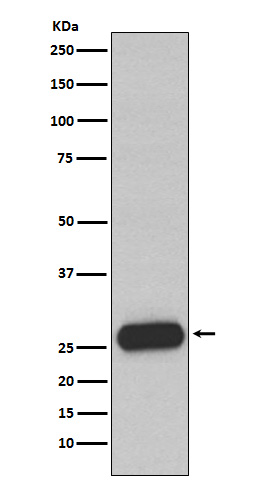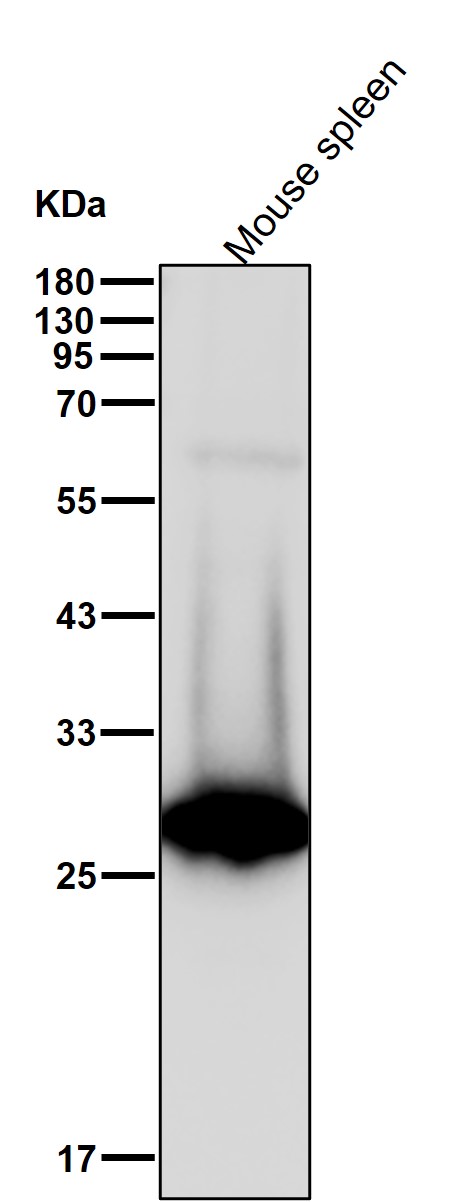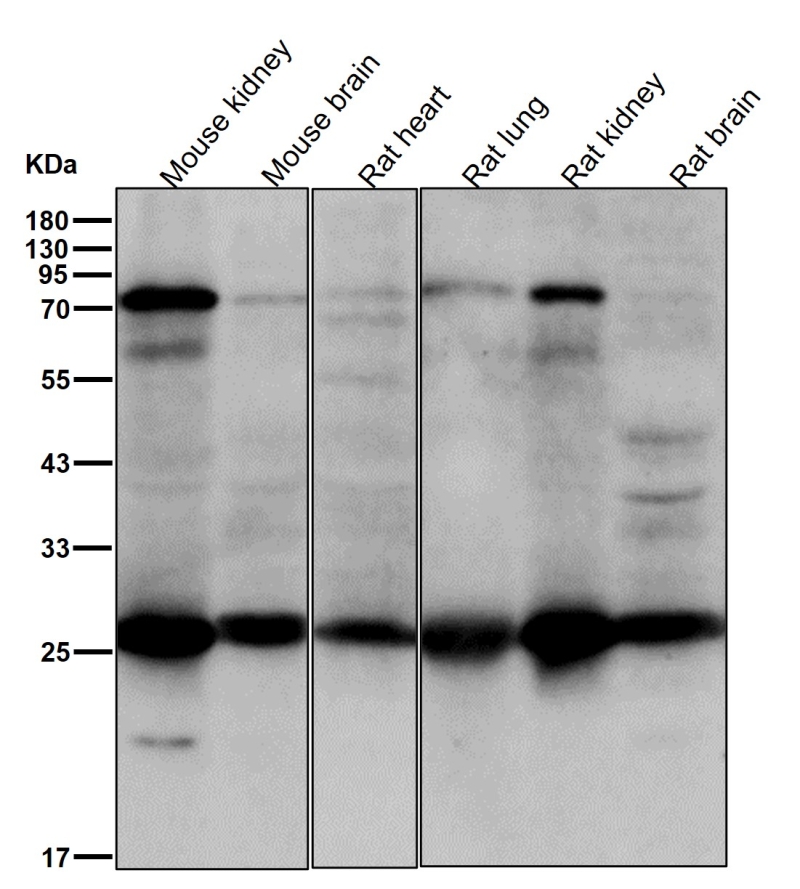


| WB | 咨询技术 | Human,Mouse,Rat |
| IF | 咨询技术 | Human,Mouse,Rat |
| IHC | 1/100-1/200 | Human,Mouse,Rat |
| ICC | 技术咨询 | Human,Mouse,Rat |
| FCM | 咨询技术 | Human,Mouse,Rat |
| Elisa | 咨询技术 | Human,Mouse,Rat |
| Aliases | Chymase 1; Chymase; CMA1; CYH; CYM; Mcp-5; MCP3P; Mcpt5; MCT1; MMCP-5;;Chymase |
| WB Predicted band size | 27 kDa |
| Host/Isotype | Rabbit IgG |
| Antibody Type | Primary antibody |
| Storage | Store at 4°C short term. Aliquot and store at -20°C long term. Avoid freeze/thaw cycles. |
| Species Reactivity | Human |
| Immunogen | A synthesized peptide derived from human Chymase |
| Formulation | Purified antibody in PBS with 0.05% sodium azide,0.05% BSA and 50% glycerol. |
+ +
以下是关于肥大细胞糜酶(Mast Cell Chymase)抗体的3篇参考文献及其摘要内容:
1. **文献名称**: *"Development and Characterization of a Specific Antibody for Human Mast Cell Chymase"*
**作者**: Smith A, et al.
**摘要**: 该研究开发了一种高特异性的单克隆抗体,用于检测人肥大细胞糜酶。通过免疫组织化学和Western blot验证,证明该抗体在区分糜酶与其他丝氨酸蛋白酶(如类胰蛋白酶)中具有高灵敏度,适用于炎症性疾病中肥大细胞活化的研究。
2. **文献名称**: *"Chymase Inhibition Attenuates Myocardial Fibrosis in Hypertensive Rats"*
**作者**: Tanaka H, et al.
**摘要**: 研究使用抗糜酶抗体阻断糜酶活性,发现其显著减轻高血压模型大鼠的心肌纤维化,提示糜酶可能通过促进血管紧张素II生成参与心血管疾病进展,抗体干预具有潜在治疗价值。
3. **文献名称**: *"Mast Cell Chymase as a Biomarker in Chronic Skin Inflammation"*
**作者**: Chen L, et al.
**摘要**: 通过免疫荧光和ELISA技术,该研究发现特应性皮炎患者皮肤中糜酶阳性肥大细胞数量增加,其释放的糜酶与疾病严重程度相关,支持糜酶抗体作为炎症生物标志物的临床应用。
(注:以上文献信息为示例性内容,实际文献需通过PubMed或学术数据库检索确认。)
Mast cell chymase (also known as mast cell protease 1) is a serine protease primarily stored in the secretory granules of mast cells, playing a key role in inflammatory and tissue-remodeling processes. As a mediator released during mast cell activation, chymase participates in degrading extracellular matrix components, activating cytokines (e.g., IL-1β, IL-18), and modulating vascular permeability. Its dysregulation is implicated in pathologies like asthma, fibrosis, cardiovascular diseases, and allergic reactions.
Antibodies targeting chymase are essential tools for studying mast cell biology and disease mechanisms. These antibodies enable precise detection of chymase expression, localization, and activity in tissues or biological fluids. Commonly used in immunohistochemistry, Western blotting, and ELISA, they help identify mast cell populations in pathological states (e.g., mastocytosis, chronic inflammation) and assess therapeutic responses. Monoclonal and polyclonal variants exist, with some clones (e.g., CC1. B7) recognizing specific epitopes or active/inactive forms.
Research leveraging chymase antibodies has advanced understanding of its dual roles—both protective (pathogen defense, wound healing) and harmful (tissue damage, fibrosis). Recent studies also explore chymase inhibitors as potential therapies, underscoring the antibody's value in drug development and diagnostic applications.
×